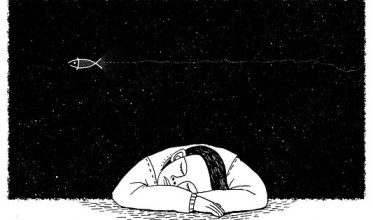
The Daughters of the Late Colonel by Katherine Mansfield offers a profound insight of a self-contained narrative that casts a critical eye on the modern world. The story features the wealthy, upper-class Pinner sisters who struggle to assert authority over their “servants” in the story. Mansfield deals with the themes of patriarchy, oppression, family, instability, and fragmentation in The Daughters of the Late Colonel.
The Daughters of the Late Colonel | Summary
Following their father’s death, Constantia and Josephine Pinner have spent a week making arrangements. Constantia asks Josephine if they should donate their father’s top hat to the porter while lying in their beds in the same room. Josephine disagrees, picturing the porter wearing their father’s hat. The sisters discuss dying their dressing gowns black and sending letters to Ceylon, where their father worked, along with the death notice. Constantia is concerned about a mouse in their bedroom. The sisters had previously discussed allowing Nurse Andrews, who had been caring for their father, to stay with them for the remainder of the week, though they were concerned that she might expect to be paid for doing so.
Nurse Andrews, who is fearful of butter and lacks table manners, makes Constantia and Josephine nervous about mealtimes. Their maid, Kate, is ill-tempered and challenging, and they abhor ordering her around. Constantia and Josephine ponder their father’s final moments on earth. He had “glared at them” disapprovingly with one eye open, which had agitated them. When a clergyman, Mr Farolles, arrived and asked if the end was quite peaceful, the sisters agreed, though they knew it wasn’t. The sisters were also terrified by Mr Farolles’ suggestion of a little communion, which they felt they couldn’t do in their apartment which lacks an altar and space for such a ritual.
Constantia and Josephine are also concerned about their father’s burial, which they believe was done without his consent. “Father will never forgive us for this—never!” exclaims Josephine, crying. Finally, the sisters decide to organize their father’s belongings, but they are in their father’s room, which is cold and white with covered furniture. Josephine panics and is anxious as she suspects her father is hiding in the chest of drawers. Constantia eventually insists that they are weak and should leave his possessions behind without going through them.
Later, the sisters discuss sending their father’s broken timepiece to their brother Benny, who works in Ceylon, through a runner who is a native who delivers parcels. They recall Benny standing on a verandah, dressed in colonial garb, next to his wife Hilda. Josephine decides that their nephew Cyril, Benny’s son, should take the watch because it is more usual. Before their father’s death, the two recollect one of Cyril’s visits. Cyril was eager to leave, but Constantia and Josephine insisted on seeing his grandfather, who was old and feeble at the time and was giving his grandson a hard time.
In the present, Constantia and Josephine debate whether or not to fire Kate, assuming that they will no longer require her services now that their father is no longer alive to cook for. The sisters don’t know much about cooking, and they’re hesitant to put their trust in Kate. Constantia suspects Kate is rummaging through their belongings while they are away. Outside, the sisters hear a barrel organ, a common occurrence in the neighborhood that used to irritate their father who would thump his walking stick incessantly, prompting them to rush to ask the organ-grinder to leave.
Josephine thinks about their mother, who died when they were children and left them with their Aunt Florence, and wonders if she and Constantia would have married if their mother had lived. There had been no suitors, except for a mysterious man in Eastbourne, where they were staying in a boarding house, who left a note outside their room that neither sister could read. Constantia reflects on her and Josephine’s life of service to their father, but it seems surreal to her as if it happened in a kind of tunnel. She can’t decide what she wants from the future, and her sister interrupts her as she begins to express this sentiment to Josephine. But, in the end, neither of them can recall what they wanted to say.
The Daughters of the Late Colonel | Analysis
Constantia and Josephine, the adult daughters of a recently deceased colonel, must fend for themselves in a world without their father in “The Daughters of the Late Colonel.” Constantia and Josephine’s lives are revealed as stunted and meaningless after the colonel’s death, because their sole purpose was to care for their elderly father. They were forced to sacrifice their futures for his well-being, and as women, they were not chosen to carry on his business work. Since Constantia and Josephine imagine his continued presence in their home, the colonel, an imposing, tyrannical man continues to forcefully influence his daughters even after his death. The colonel, as a symbol of patriarchy, oppresses and provokes his daughters’ fear, uncertainty, and passivity.
Constantia and Josephine imagine that their father still has power over them after his death, implying the colonel’s, and more broadly, patriarchy’s, profound impact on the sisters and their lives. Constantia and Josephine are concerned that their father will disapprove of their funeral plans because “neither of them could believe that father was never coming back,” instead imagining that he “will never forgive” them for burying, and thus disempowering, him. Indeed, the daughters’ anxiety over their father’s death consumes a significant portion of the story. Constantia and Josephine are nervous about donating and organizing their father’s belongings because they are afraid that giving his watch and top hat to family and staff members will offend him. Constantia and Josephine’s relationship with their brother, nephew, and deceased mother is as complicated as their relationship with the colonel, according to flashbacks in the story. Mansfield paints a picture of a shattered family torn apart by death, money, and competing desires.
“The Daughters of the Late Colonel,” written in the immediate aftermath of the Victorian era, examines family structures that no longer adhere to the traditional model of stable Victorian living. The Pinners are dysfunctional, detached, and fragmented—qualities that Mansfield mirrors in the story’s structure, which includes abrupt time and space shifts. The Pinners’ lack of stability reflects the burgeoning modernist era’s overall insecurity, which was marked by war, economic disruption, and major sociocultural shifts. As a result, “The Daughters of the Late Colonel” serves as a cautionary tale about the patriarchy’s long-term, toxic influence. Even though no patriarchal figures interfere with the sisters’ daily lives after the colonel’s death, their entire identities have been built and crystalized around male demands and male superiority.
Mansfield appears to suggest in this story that even when patriarchal figures die or depart, as Constantia and Josephine’s male relatives have, the result is confused, ineffective, and feeble women who are unable to understand their roles in society or imagine a world without men. Although they are aware that there is a vibrant world outside of their chaotic, disorganized home, Constantia and Josephine are unable to access this world and the fulfilment it may bring, instead choosing to wallow in passivity and fear. Mansfield’s story reflects a period in which women, despite the prospect of independence and waning male authority, struggled to create identities and lifestyles free of patriarchal influence.
The Daughters of the Late Colonel | Themes
The short story deals with the themes of patriarchy, oppression, family, instability, and fragmentation. Constantia and Josephine imagine that their father still has power over them after the colonel’s death, implying the colonel’s, and more broadly, patriarchy’s profound impact on the sisters and their lives. Though absurd—since the colonel is dead, he cannot be offended by his daughters’ actions—this fear reveals Constantia and Josephine’s feelings of confinement and powerlessness in their home, where their father’s memory still holds sway. Mansfield paints a picture of a shattered family torn apart by death, money, and competing desires. Despite their grief over their father’s death, Constantia and Josephine are reminded of his tyranny, cruelty, and weakness as a father. Paternalistic love is neither a given nor a stabilizing force in this post-Victorian family. During the colonel’s lifetime, Constantia, Josephine, and their nephew, Cyril, receive no support or kindness from him, who treats them all with contempt, especially Cyril, whom he chastises in a flashback to a scene before his death. Cyril finds his family to be obnoxious and overly complicated.
The Daughters of the Late Colonel | Character Sketch
Josephine Pinner – Josephine, also referred as “Jug,” is the Pinner family’s older sister. Josephine becomes concerned about their father’s memory after his death, despite being tempestuous and disagreeable with Constantia, with whom she frequently quarrels. Constantia leads her away from the room, leaving it unorganized, because she is too eager to clear out his belongings from his room.
Though she is irritable with her sister, she is courteous to Nurse Andrews, their houseguest, and their maid Kate, who appears to be more involved in household management than Constantia. Josephine wistfully remembers their life without a mother or marriage prospects at the end of the story, but she ultimately appears incapable of putting her desire for a fuller life into action.
Constantia Pinner – Constantia Pinner, also known as “Con,” is Josephine’s younger sister. She is calmer and less agitated than her sister. She sympathizes with a mouse in their room looking for crumbs—but she eventually assists Josephine in leaving their father’s room when she is overcome with emotion, demonstrating an authority that she initially lacks. Though she is frequently dreamy and out of touch with reality, frequently drifting off on vague and wondering tangents, often about exotic destinations in the desert with “camels.” Constantia believes that her life while her father was alive was surreal, a nightmare, but she is unsure what she wants from life now that she and Josephine are no longer under his command.
The Colonel – Constantia, Josephine, and Benny’s father, the Colonel, is the patriarch of the Pinner family. The colonel, who retired from his job as a colonial administrator in Ceylon and spent his final years with his adult daughters, was tyrant, imposing, and cruel. Because his wife died when his children were young, it is assumed that the colonel raised his children primarily on his own and treated them with varying degrees of severity—particularly Josephine and Constantia, who were frequently subjected to his demands and targets of his criticism. The colonel became senile and irritable around his daughters and grandson, Cyril, as he grew older, and he does not seek forgiveness for his actions in his final days.
Cyril Pinner – Cyril is the colonel’s grandson and the nephew of Constantia and Josephine. Cyril works in London and only sees his aunts on rare occasions; it is implied that he declined to attend his grandfather’s funeral. He also has a tense encounter with his senile, near-deaf grandfather, which appears to be the reason for his absence from the funeral. Cyril is a product of his dysfunctional family, and he appears to want to avoid them at all costs. He is also the proud owner of his grandfather’s watch.
Kate – Kate is Constantia and Josephine’s difficult, flighty maid, a long-serving member of the Pinner household who has spent many years with the women and their father. Despite the fact that she is frequently rude and unhelpful—refusing to fetch food or take orders from her employers—Josephine and Constantia treat her with respect and cautious politeness, fearful of offending or bothering her. Constantia is concerned that Kate may “snoop” in their belongings while they are away, and the two sisters discuss firing her, believing that her services are no longer required following their father’s death.
Nurse Andrews – Nurse Andrews assisted in the care of the colonel as he approached death, and Constantia and Josephine reluctantly agree to let her stay in the apartment after his funeral because she is a bad houseguest who enjoys overeating and whining about “butter.” She is said to work for upper-class families and to present herself in a sophisticated manner. However, the sisters can’t entirely blame her because she was kind to the colonel, which was a difficult feat given his erratic behavior.
Benny Pinner – Benny is the father of Cyril and the brother of Constantia and Josephine. He, like his father, the colonel, works in Ceylon and shakes his right hand “up and down, as father did when he was impatient.” His sisters debate whether or not to send their father’s old timepiece to him, but ultimately choose Cyril. Benny hasn’t seen his son in a long time and isn’t close with him or his sisters.
The Daughters of the Late Colonel | Literary Devices
Mansfield uses flashbacks in the story to reveal the family members dysfunctional relationship. During a visit to Constantia and Josephine which is recounted using flashback, Cyril feels uneasy around his relatives and tries to flee. The readers learn that he knows very little about his father, Benny, and that the two of them haven’t seen each other in a long time. Mansfield also employs symbolism in the story. The colonel’s watch is one such symbol. Constantia and Josephine disagree about how to handle the colonel’s gold watch, which Josephine suggests they give to their brother Benny as a present. The sisters’ obsession with the broken timepiece echoes the story’s obsession with jumbled time. Constantia and Josephine are out of step with the rest of the world and despite their age, their demeanors are childlike. His eye yet another symbol have been used to depict the authority and power that the colonel exercised on his daughters. While his daughters gather around his deathbed, the colonel suddenly opens one eye: instead of imparting last words, the colonel’s eye “glares” at the sisters.
The Daughters of the Late Colonel | About the Author
Kathleen Mansfield Murry worked as a journalist, essayist, and writer. She is widely regarded as one of the most influential and essential authors of the modernist movement. Mansfield wrote short stories and poetry under the pen name Katherine Mansfield that dealt with anxiety, sexuality, and existentialism in the context of a developing New Zealand identity. “The Garden Party”, “At the Bay”, “Miss Brill”, “The Fly”, “Something Childish But Very Natural” are some of her important works.



